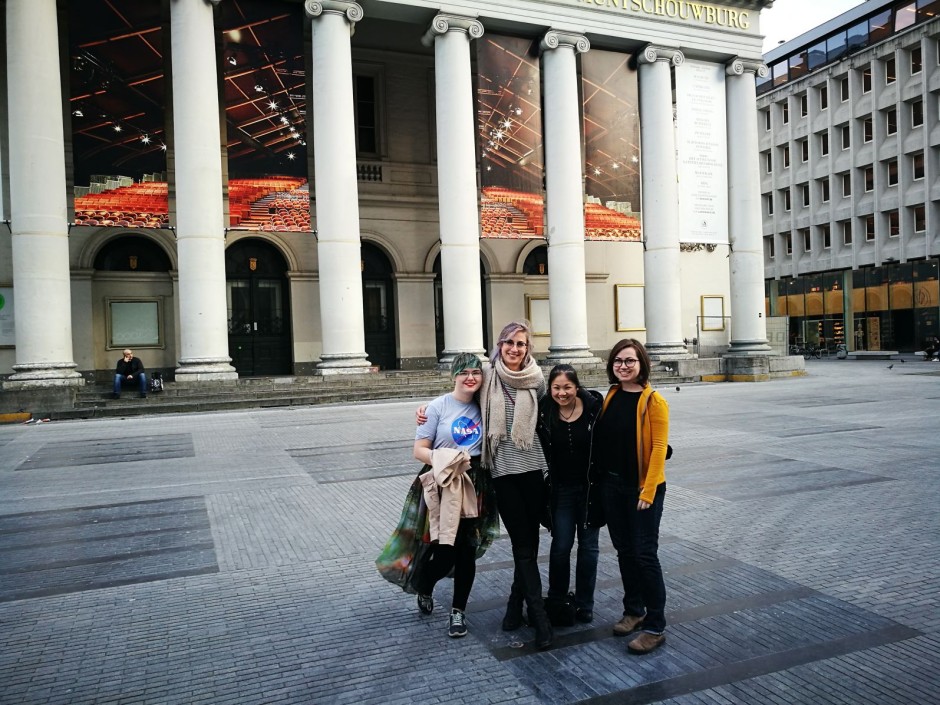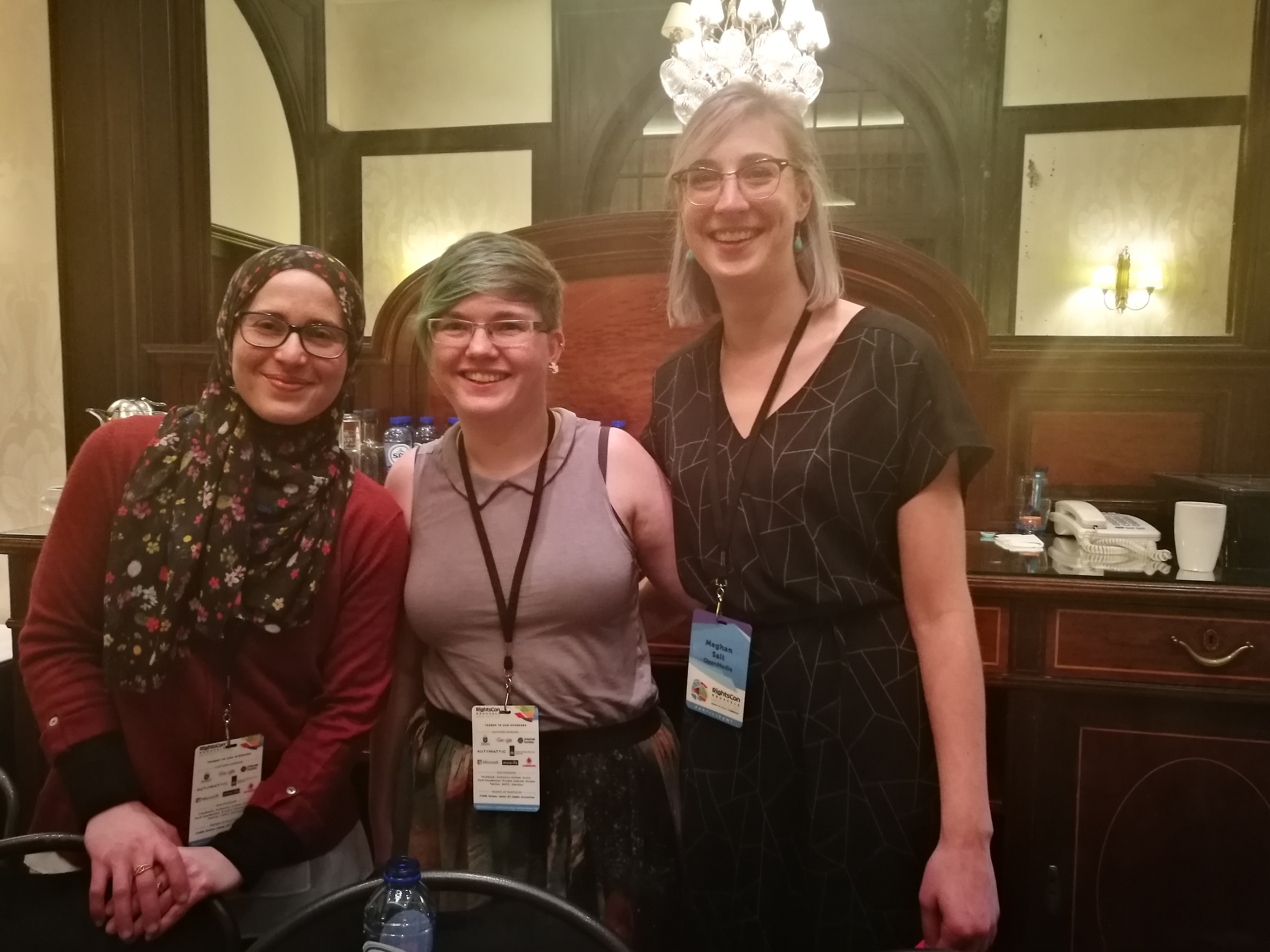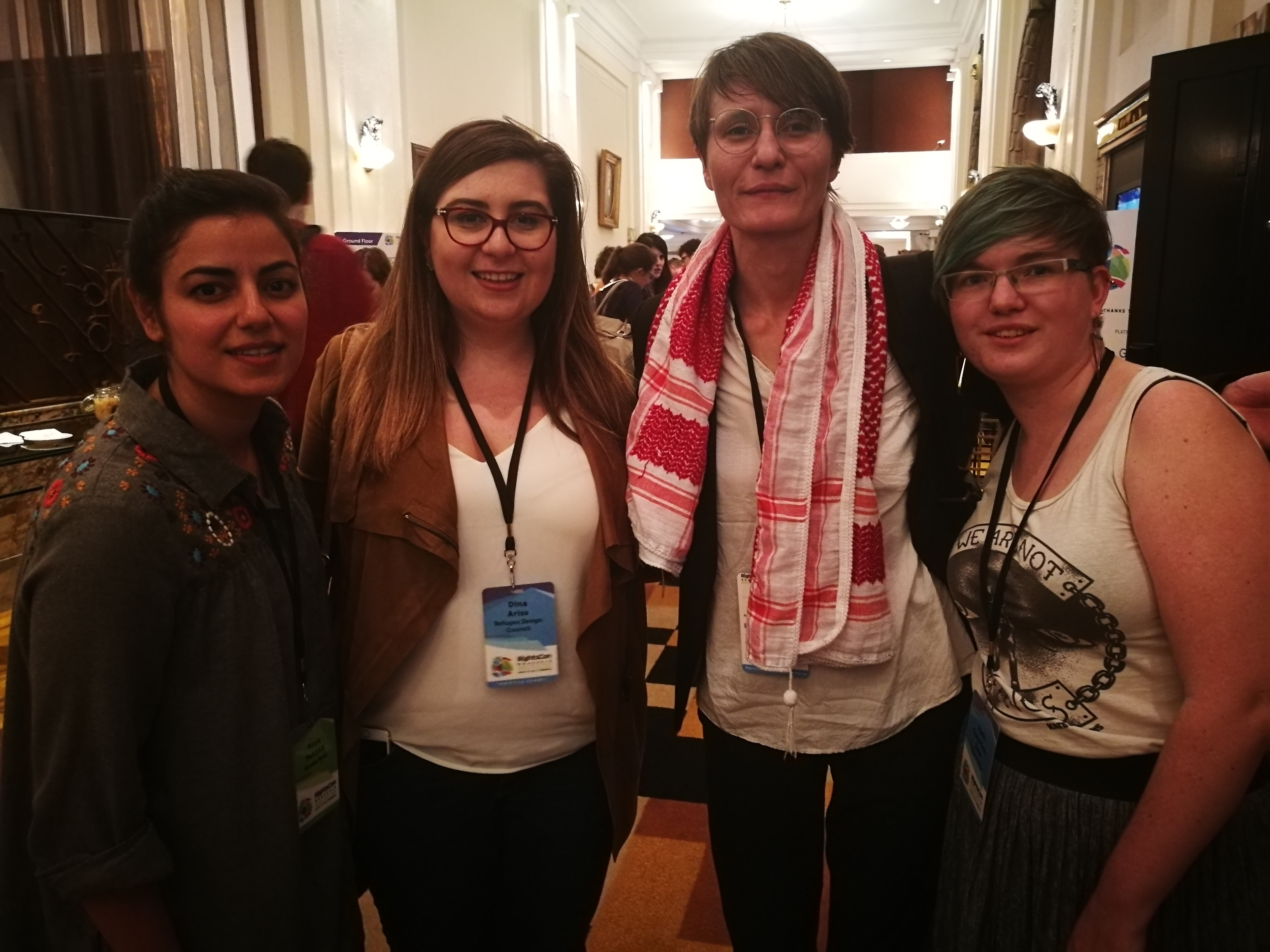Ruth’s take on RightsCon, the world’s largest digital rights conference
Here are my top highlights as OpenMedia's Free Expression Campaigner, in attendance at RightsCon 2017, which took place in Brussels March 29-31.
Highlights of being at RightsCon
RightsCon, organised by AccessNow, is the largest annual digital rights conference, and I was ridiculously pumped to get to go for the first time. It had an incredible number of sessions happening simultaneously and over 1000 people attending with topics like harassment, fake news, Internet of things, copyright reform, mass surveillance, net neutrality etc. etc. being discussed by people whose books I have on my shelf. Here's a photo of our OpenMedia team of representatives in Brussels, ready for all these things!
Amira Elghawaby, Ruth Coustick-Deal, Meghan Sali
The best thing about RightsCon is obviously meeting people, hearing about cool projects and having hour long discussions about the problems of international jurisdiction of the Internet… #nerd
One of my favourite sessions was on zero rating (the practice of making some sites data-costs free online) - it’s usually a topic that Katy (Access Campaigner) and Cynthia (Digital Policy and Research Fellow) work on so I was intrigued to dip in. And I got the benefit of a really interesting debate between rights advocates. Wikimedia were arguing for zero rating for Wikipedia, describing the encyclopedia site as the equivalent of a public library, and speaking about the value of making an open collaborative project the first bit of the net newcomers get.
On the other side representatives from digital rights organizations in Nigeria, India and Brazil were firm that zero rating, even on a case-by-case basis, breaks net neutrality rules, and sets a standard that ‘some sites are freer than others’. Wiki-access is too small a benefit to bring those principles crashing down. And why should they have worse Internet outside of America anyway? Vidiushi Marda made the points that even free Wikimedia is still framed as ‘bringing culture to the people’ rather than the bringing the opportunity to make their own culture online like those in the West have been able to do.
Best conference moment for my campaign work
The top moment for the Save the Link campaign was attending a panel on the copyright rules in the EU. Each member of the panel spoke about a different aspect of the law that they working on. It was exciting to get to the ‘link tax’ (the part I’ve been most involved in) and hear stories I haven’t heard before! Marta from the Spanish news site eldiario.es described how the publishers lobby group who fought for national link tax rules doesn’t even allow digital-only papers like hers to be part of it, and how her business focuses on making the kind of content people will subscribe to, rather than charging for links.
Then on content filtering we heard from Seznam.cz - a search engine based in the Czech Republic which generates 55% of the web searches in that country. Their representative spoke about how forcing them to build a content filtering mechanism onto their site would harm their business, and benefit existing American tech monopolies rather than supporting European business, as the Commission claim.
Cynthia and I organized a session on connecting migrant rights with digital rights campaigners. There are some alarming areas of cross-over in our work - especially when it comes to access to the Internet. For example, detention centres in the UK keep people in indefinite prison, often without access to the Internet - thus denying them contact with families, or legal information. We wanted a space to connect these movements together. DetentionForum UK, Refugee.info, Empower Hack, Migrant Women Network all spoke, some of whom came specially for this panel. It was a moving session, and I admire the determination of the campaigners in this field. I went away musing on the reminder that our job should be to raise up and promote the work of refugees and immigrants on these topics, rather than finding ways to speak for them - and that there is still a lot of work to be done to help make this possible.





 Take action now!
Take action now!
 Sign up to be in the loop
Sign up to be in the loop
 Donate to support our work
Donate to support our work